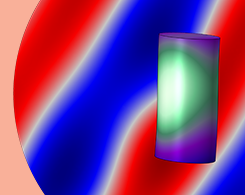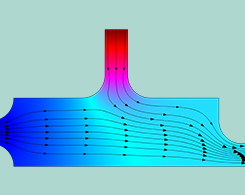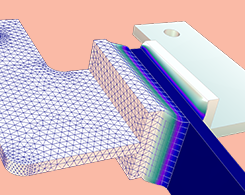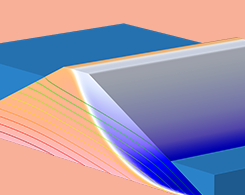Latest Posts

Introduction to Modeling Acoustic-Structure Interactions in COMSOL®
To model an ASI problem, you need to account for the behavior of elastic waves in solids, pressure waves in fluids, and their interaction. The COMSOL® software includes interfaces for doing so.

Optimizing PID Controller Performance with COMSOL Multiphysics®
PID controllers involve three components that must work together simultaneously, and it can be challenging to get each of them just right. That’s where process control simulation comes in.

Frequency Response of Mechanical Systems
Read this blog post for a detailed look at damped mechanical systems, a guide to setting up frequency-response analyses in COMSOL®, and a discussion of how to interpret your results.

Efficient Parameter Control and Usage in COMSOL Multiphysics®
Any model can benefit from a proper parameter list. Learn how to control and use model parameters more efficiently with features such as parameter nodes and forms.

Keynote Video: Improving Process Understanding with Applications
When an organization’s research spans across many industries, consistent product quality becomes the name of the game. That’s why Huntsman Advanced Materials turned to simulation applications.

How to Use Lumped Elements to Model a Mechanical System
Modeling a large, complex system? You may want to simplify configurations in the model setup to better understand it, but how? Enter the Lumped Mechanical System interface in COMSOL Multiphysics.

Analyzing Slope Stability Through the Shear Strength Reduction Method
Dams that are poorly designed or constructed are likely to fail. However, geotechnical engineers can account for the stability and reliability of a dam long before the structure is even built.

How Does Sand Move on Mars? A Planetary Geology Question
There are a lot of sand dunes on the red planet. Studying how sand and sediment moves on Mars may help scientists better plan exploratory missions.
